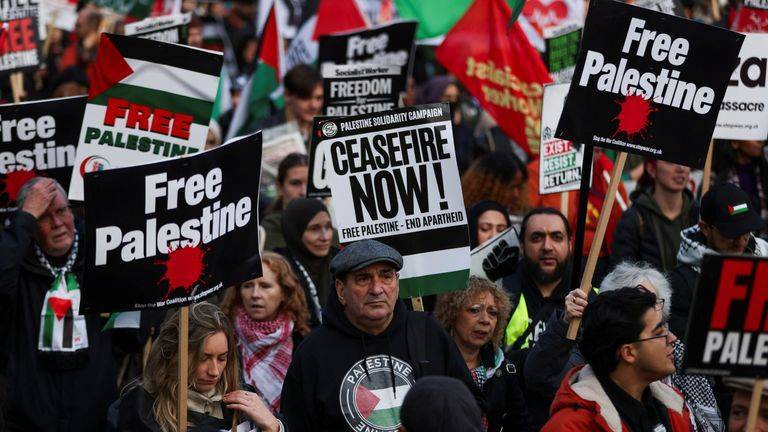Gaza: The UN’s children’s agency, Unicef, has warned that in the coming weeks, at least 10,000 children in Gaza under the age of five will suffer the "most life-threatening form of malnutrition” and will require emergency food supplements.
In a statement released on X (formerly Twitter), Unicef also expressed concerns for the health of more than 155,000 pregnant and breast-feeding Palestinian women, as well as more than 135,000 children under the age of two, who are inside the besieged Gaza Strip where food and health systems are in the process of “complete collapse”.
Acute food insecurity puts all children under five in the #Gaza Strip—335,000—at high risk of severe malnutrition and preventable death.
— UNICEF MENA - يونيسف الشرق الأوسط وشمال إفريقيا (@UNICEFmena) December 22, 2023
Statement by UNICEF on the risk of famine in the Gaza Strip: https://t.co/ORPepFVoq6 pic.twitter.com/20CBu3N7MO
“We need an immediate and long-lasting humanitarian ceasefire so that humanitarian actors can support the strengthening and restoring of essential services across the Gaza Strip,” Unicef said in a statement.
“We need the restoration of critical infrastructure, including hospitals, so young children, pregnant women and injured patients can safely access life-saving treatment and care,” it added.
Meanwhile, the UN Security Council called for boosting humanitarian assistance for Gaza.
On Friday, the Security Council passed a resolution urging steps to allow “safe, unhindered, and expanded humanitarian access” to Gaza and “conditions for a sustainable cessation” of fighting.
The resolution was watered down from earlier drafts that called for an immediate end to 11 weeks of war and diluting Israeli control over aid deliveries, clearing the way for the vote in which the United States, Israel’s main ally, abstained.
Washington repeatedly has backed Israel’s right to self-defense following the October 7 raid into Israel by Gaza’s ruling Hamas fighters.
Gilad Erdan, Israel’s UN ambassador, said the Security Council should have focused more on freeing the hostages and that concentrating on “aid mechanisms” was unnecessary as Israel permits “aid deliveries at the required scale.”
Hamas and the West Bank-based Palestinian Authority split over the measure, with the former saying it was “insufficient” to meet the stricken enclave’s needs and defied international calls for an end to “Israel’s aggression.”
The authority’s foreign ministry welcomed the resolution as a step that would help “end the aggression, ensure the arrival of aid and protect the Palestinian people."
The United States and Israel, which has vowed to eradicate Hamas, oppose a ceasefire, contending it would allow the resistance group to regroup and rearm.


